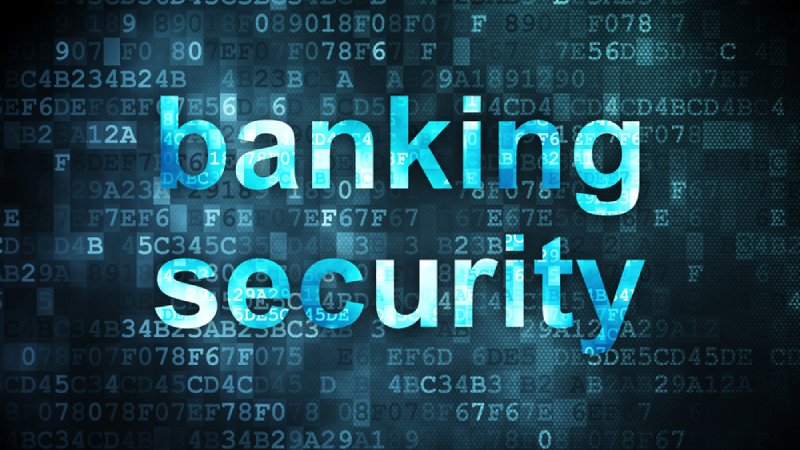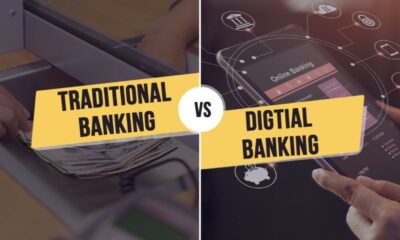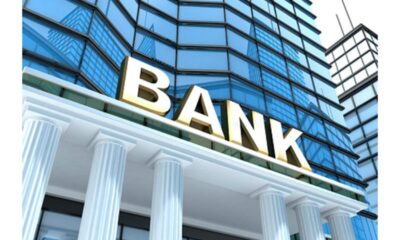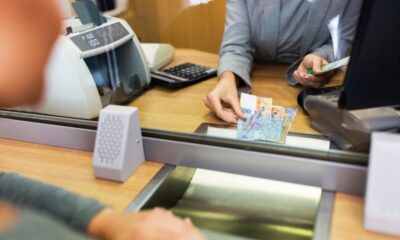Business
Six Essential Security Features to Take into Account When Selecting a Bank

You can handle many of your regular banking needs from the comfort of your home with online banking, saving you the trouble of going to a physical branch. You should make sure your financial institution has security measures in place to keep your money and personal information safe from hackers, though, if you bank online.
In 2023, 83% of consumers felt confident in their bank’s security measures, but half of all consumers thought they should offer more protection, according to a PYMNTS and Entersekt study. Additionally, 38% of consumers expressed concern about security measures when utilizing new devices to access their bank accounts, according to the same study.
It’s important to learn more about your financial institution’s online security measures before selecting a bank account.
The importance of banking security
Consider every piece of information your bank possesses about you and your financial situation. When you open a bank account, you are entrusting that financial institution not only with your money but also with sensitive data like your date of birth, Social Security number, work and income details, address, and more.
This kind of information, in the wrong hands, can result in fraud, identity theft, and other cybercrimes. And there is a real risk in that. According to a study by the Identity Theft Research Center, in 2023 the personal information of over 300 million Americans was compromised. More than 700 financial services firms disclosed breaches, which is twice as many as the previous year.
The good news is that both consumers and banks can use several security measures to protect banking information.
Six aspects of bank security to consider
When choosing a new bank or assessing the one you currently use, make sure the following security measures are in place:
- Encryption
Banks utilize encryption as a technique to encrypt data so that only those with permission can view it. On their websites, the majority of banks and credit unions provide details about the encryption technology they employ. One tool that can prevent cybercriminals from obtaining your sensitive information is strong encryption.
- Two-factor authentication (2FA)
To secure your bank account, two-factor authentication is an extra precautionary measure that you should take into consideration in addition to your username and password. For instance, you might be asked to respond to security questions or enter a one-time code that the bank texted to you.
The process of logging into your account every time may appear like an extra, tiresome step. But two-factor authentication adds an extra layer of security in case your password is compromised.
- Biometric authentication
Sometimes you need to use your fingerprint or face recognition to access bank accounts. This adds an extra degree of security to your private password and guarantees that only you can access your account.
- Fraud monitoring and security alerts
Fraud monitoring is an essential component of security and risk management procedures used by banks. This entails checking transactions for questionable behavior, such as out-of-state or abnormally large purchases, and alerting clients to possible problems before approving them.
You can also typically set up account alerts for fraudulent or suspicious activity. For example, you may wish to be notified by text or email whenever a transaction exceeds a specific dollar amount. This can assist you in promptly identifying and resolving any unauthorized purchases.
- Strong password policies
A lengthy list of password requirements from your bank may seem like an extra step in the process, but a strong password is essential to safeguarding your banking information. Almost nobody can guess your password and access your account without authorization if it is random, complicated, and unique.
- Logout automatically
If you forget to log out, some banks have a session timeout feature that can help safeguard your online banking account.
This is how it operates: Upon logging into your online banking account, a timer is initiated by the bank’s server. This timer measures the amount of time that passes during your idle banking session—that is, during which there is no communication between your device and the bank’s server, such as when you click, type, or browse the website. When the timeout period is about to expire, you might get a prompt or warning. You will be automatically logged out of your account if nothing is done, which will stop anyone else using the same phone or computer from accessing it.
How to protect the security of your online banking information
Selecting a bank that takes great care to safeguard you and your financial data is essential, but security precautions are limited. Additionally, there are crucial actions you can take in collaboration with your bank to safeguard your data.
Stay away from public computers and networks: These devices, which many people often use, can be dangerous because they can store your keystrokes, which makes it simpler for someone else to steal your login information. Make sure you only access your online banking account on a private network and make sure you log out of any personal accounts you use on public computers.
Make sure your passwords are distinct, and change them from time to time: It can be risky to use the same passwords for all of your personal accounts in case any of them are hacked. Prioritize changing your current passwords on a regular basis, and create special password combinations (consisting of both capital and lowercase letters, numbers, and symbols) for each of your accounts. Fear not: A password manager like LastPass or 1Password can safely store all of these passwords for you and even recommend unique ones. You don’t even need to memorize them all.
Utilize two-factor authentication (2FA): It may add an extra step to your login procedure, but it can significantly improve account security. Take the time to add a second line of defense against hackers to your account—your phone number, email address, or recognition software.
Get alerts about banking: You might not be aware of any unauthorized transactions if you don’t go through your monthly bank statement. Fortunately, many banks have systems set up to instantly identify these for you. Nevertheless, to make sure you are informed of any suspicious activity, it’s a good idea to log into your bank account and check your account and notification settings.
-

 Business3 weeks ago
Business3 weeks agoPrakash and Kamal Hinduja: Driving Social and Environmental Change
-
Education4 weeks ago
Fred DuVal: University Leadership as a Critical Resource for Climate Change Research and Life-Saving Solutions
-

 Health3 weeks ago
Health3 weeks agoThe Hinduja Brothers Commitment to Global Health: Empowering Communities Across Borders
-

 Cryptocurrency3 weeks ago
Cryptocurrency3 weeks agoDesigned For The Masses: How Akasha (AK1111) Is Unlocking Crypto For The Next Billion Users
-

 Cryptocurrency4 weeks ago
Cryptocurrency4 weeks agoNexaglobal & Future World Token (FWT): Could This Be the Next Big Crypto Investment of 2025?
-

 Startup2 weeks ago
Startup2 weeks agoCost-Saving Strategies Every Small Business Owner Should Know to Boost Efficiency
-

 Startup3 weeks ago
Startup3 weeks agoMatthew Denegre on the Art of Deal Sourcing: Finding the Right Investment Opportunities
-

 Health2 weeks ago
Health2 weeks agoSt. John’s Community Health Examines Innovations in Pharmacy Access























